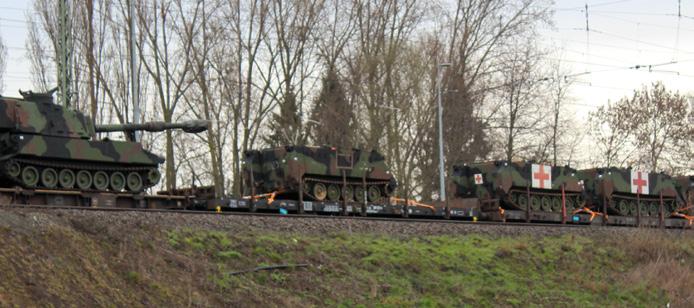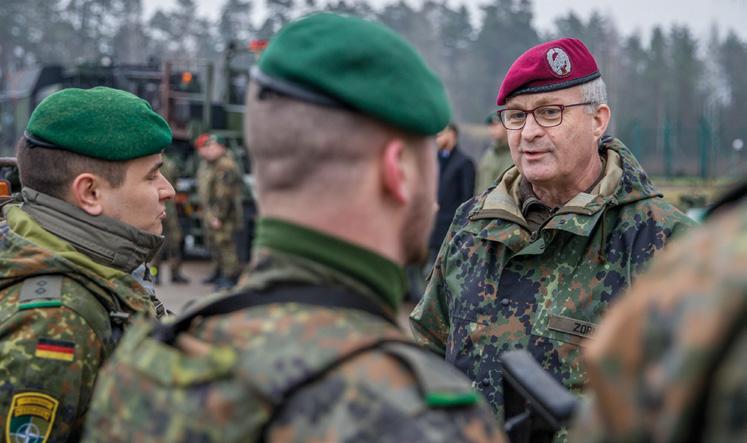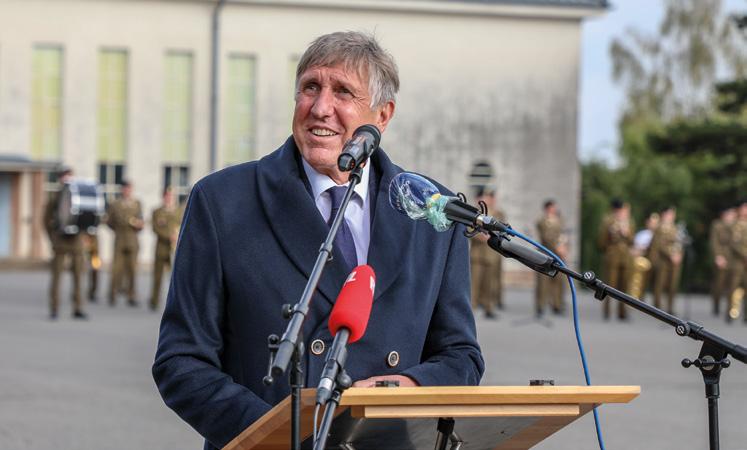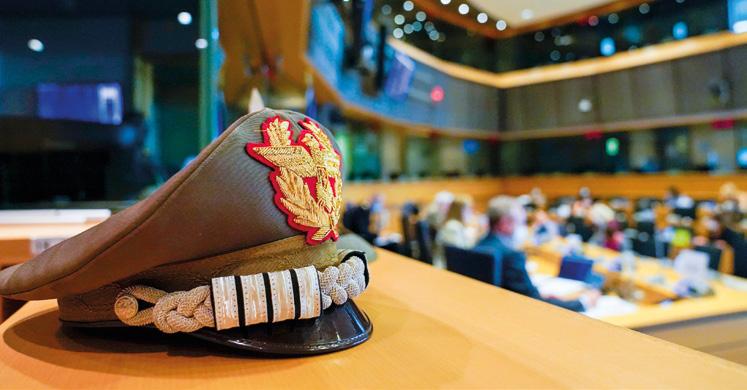
5 minute read
News, Nannette Cazaubon
COVID-19 EU vaccines strategy
(Ed/nc) At the European Council of 10th 11th December, EU leaders welcomed the positive announcements on COVID-19 vaccines and the common advance purchase agreements by the Commission. They highlighted the importance of preparations for the timely deployment and distribution of vaccines to ensure they are made available in good time and in a coordinated manner.
graphic: brgfx, www.freepik.com
The heads of state and government agreed to enhance the sharing of experiences and plans, and they underlined the need to pursue work to increase resilience in the area of health. They invited the European Commission to present a proposal for a Council recommendation on a common framework for rapid antigen tests and for the mutual recognition of test results. A coordinated approach to vaccination certificates should also be developed. The EU will promote ways to reinforce international cooperation, including through a possible international treaty on pandemics within the framework of the World Health Organization in order to better anticipate and manage potential future pandemics.
Council results: https://bit.ly/3mq7HO4 EU Covid-19 response: https://bit.ly/3npCbBg British-German relations Prince Charles at the German Bundestag (Ed/hb) On 15th November, Prince Charles spoke of Germany and the UK’s shared values in a historical speech at the German Bundestag in Berlin on the occasion of Germany’s Day of Mourning. During his speech, he made direct reference to Brexit, saying: “The UK has chosen a future outside the European Union, and the relationship between our countries is evolving once again. Its shape is a is defined by the enduring connections between our people.” The Prince of Wales added: “It is, therefore, my heartfelt belief that the fundamental bond between us will remain strong: we will always be friends, partners and allies”. Prince Charles and the Duchess of Cornwall had earlier been greeted by the President of Germany, Walter Steinmeier and his wife Elke Budenbender.
Obituary Valéry Giscard d’Estaing
(Ed/hb) With the death of Valéry Giscard d’Estaing on 2nd December at the age of 94, the world has lost a great European. As the President of France from 1974 to 1981, he was a liberalising moderniser of his country and its society. As a convinced European, he made the European Union more democratic through the introduction of universal suffrage for elections to the European Parliament and politically more effective by creating the
matter negotiated between our governments and its essence
The Prince of Wales speaking at the Bundestag on 15th
November 2020
Photo: © Deutscher Bundestag / DBT
European Council.
photo: European Union, 2002, © christophe Lambiotte
The deep understanding that he developed with the German Chancellor, Helmut Schmidt, led to their joint initiative that paved the way for European monetary union and a more orderly global economy. They also promoted together the Helsinki Process (Charter 1974) which culminated in the creation, for the benefit
of both East and West, of the ‘Conference for Security and Cooperation in Europe’ (CSCE), a platform for human rights, democratic development and arms control. At the beginning of the new millennium he chaired the Convention on the future of the European Union, which should have led to a European constitution. Ultimately however, he was unable to overcome the resistance of some heads of government. In 2003, he was awarded the prestigious Charlemagne Prize. France and Europe have lost a great citizen!
Cybersecurity New EU Cybersecurity Strategy
(Ed/nc) On 16th December, the European Commission and the EU High Representative Josep Borrell announced a new EU Cybersecurity Strategy in answer to the challenges of geopolitical competition in cyberspace, and the increased cyber threat landscape in a post-Covid-19 world. The new Cybersecurity Strategy covers five policy domains: enhancing international security; strengthening the EU’s cyber diplomacy toolbox; stepping up cyber defence coordination and cooperation and building cyber defence capabilities; strengthening and expanding international partnerships and exchanges, and increasing the EU external cyber capacity building
More information: https://bit.ly/3gUMXwL → See also the article on cybersecurity by Jean-Louis Gergorin and Léo Issac-Dognin (pp.15-16)
(Ed/nc) On 11th December, a virtual event entitled “Climate change, Defence and Crisis Management: from Reflection to Action” put the focus on the implications of climate change on EU crisis management and defence. During the event, which was co-organised by the EU Institute for Security Studies (EUISS) and the European External Action Service (EEAS), EU High Representative/ Vice-President Josep Borrell presented a Climate Change and Defence Roadmap for EU actions contributing to the wider climate-security nexus. The Roadmap puts forward a set of concrete actions aimed at raising awareness of the effects of climate change on crisis response, security and defence. It focuses on new challenges, such as ensuring that military equipment remains effective in extreme weather conditions and providing more energy efficient technologies for missions and operations. The objective is also to build strong cooperation with international partners to tackle security and defence issues derived from climate change.
https://bit.ly/2Ko6kCl → See also the article on European security and defence by HR/VP Josep Borrell (pp.8-9)
“Mirror, mirror on the wall ...”
© Peter Slama

Terrorism EU Counter-Terrorism Agenda
(Ed/nc) On 9th December, the European Commission presented a new Counter-Terrorism Agenda for the EU. The agenda is aimed at better supporting Member States in their fight against terrorism and violent extremism and to boost the Union’s resilience to terrorist threats. The Commission also proposed to revise the mandate of the EU Agency for law enforcement cooperation, Europol, to deliver better operational support to Member States’ investigations against terrorist networks. The key objectives are : • identifying vulnerabilities and building capacity to anticipate threats; • preventing attacks by addressing radicalisation; • promoting security by design and reducing vulnerabilities to protect cities and people; • stepping up operational support, prosecution and victims’ rights to better respond to attacks; • a stronger mandate for Europol. Press release: https://bit.ly/3nqiLfv Agenda: https://bit.ly/3gP4eaR
Appointment New OSCE Secretary General (Ed/hb) German EU diplomate Helga Schmid, currently Secretary General of the European External Action Service (EEAS) since 2016, was nominated on 4th December to take over a new leadership role as
Photo: © European Union, 2017/EC-Audiovisual Service, Mauro Bottaro
Secretary General of the Organization for Security and Co-operation in Europe (OSCE) with its 57 Member States. The OSCE has a staff of over 3,000 and a broad mandate that includes arms control, counter-terrorism, human rights and environmental activities. Ms Schmid is known worldwide as a strong negotiator since she sealed the nuclear deal with Iran in 2015. Among the burning security issues to monitor, she will have the fragile truce in eastern Ukraine, peace and democracy-building missions in the Balkans and assuring the recent peace deal in Nagorno-Karabakh. The EU has nominated the Italian Stefano Sannino, currently Helga Schmid’s deputy, to succeed her as Secretary General of the EEAS .










